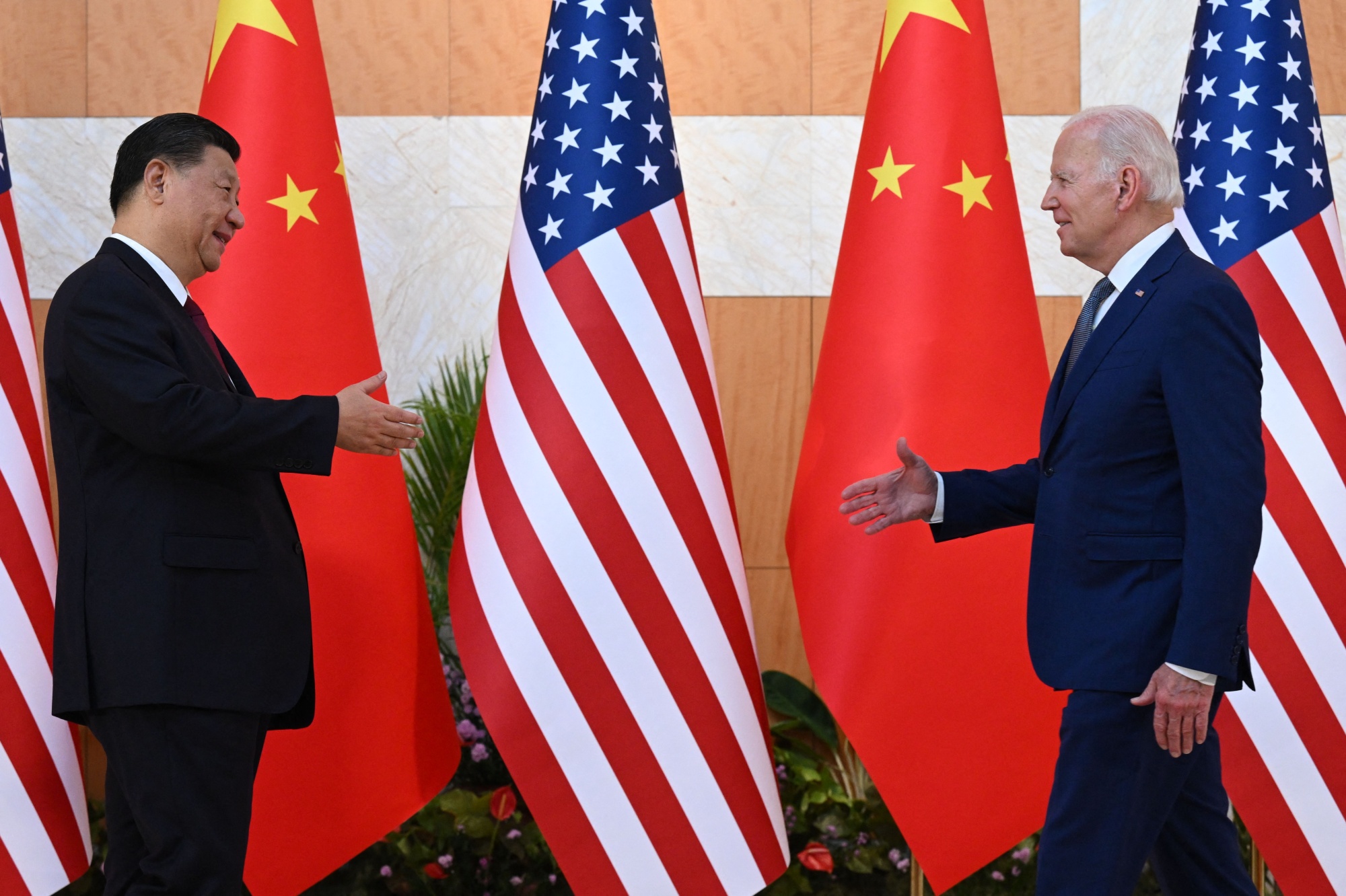
In a significant second at the high-stakes culmination between U.S. President Joe Biden and Chinese President Xi Jinping, Secretary of State Antony Blinken’s noticeable response mirrored the pressure as Biden withdrew from the content, marking Xi Jinping a “tyrant.” The unscripted comment has touched off a whirlwind of responses and uplifted the generally perplexing elements between the two countries.
Thank you for reading this post, don't forget to subscribe!The highest point, held Wednesday morning in front of the yearly Asia Pacific Monetary Participation (APEC) gathering, denoted the primary up close and personal gathering among Biden and Xi in a year. Long periods of extreme political endeavors went before this basic exchange, as the two countries wrestle with mounting pressures traversing exchange, common liberties, and the continuous worldwide pandemic.
Uninvolved of the culmination, President Biden made an unmistakable portrayal of his Chinese partner, expressing, “He’s a tyrant as in he’s a person who’s running a country, a Socialist nation, that depends on a type of government entirely unexpected than our own.” This takeoff from discretionary language and the utilization of the expression “despot” caused a commotion, among participants as well as worldwide.
The Chinese government quickly censured U.S. President Biden’s comments, with Unfamiliar Service representative Mao Ning expressing, “This sort of discourse is very off-base and is reckless political control. China immovably goes against it.” The solid phrased reaction highlights the responsiveness encompassing strategic language and the possible ramifications of such portrayals on global relations.
Secretary Blinken, in any case, came to President Biden’s protection, underscoring the assumption that China ought to be ready for authentic explanations it might view as unpleasant. “The president generally talks openly, and he represents us all. See, obviously we will keep on talking and keep on doing things that China could do without, similarly as I expect that they will proceed to do and make statements that we could do without,” Blinken made sense of in a meeting with CBS News, as cited by news organization.
Regardless of the friction over the portrayal of President Xi, the highest point delivered a few eminent arrangements. The two chiefs arrived at an agreement to restore military-to-military correspondence channels, a pivotal move toward upgrading exchange and lessening the gamble of errors. Moreover, President Xi swore to shorten the development of fentanyl forerunners in China, tending to a common worry between the two countries.
Nonetheless, difficulties and vulnerabilities loom not too far off. Conflicts over Taiwan continue, with the two sides repeating their positions. As Taiwan gets ready for races in January, there is potential for uplifted pressures across the waterway. Moreover, with the U.S. entering political race mode one year from now in front of surveys in November 2024, the ghost of warmed way of talking on China during the mission season adds one more layer of intricacy to the respective relationship.
The Biden-Xi culmination, set apart by a sincere second and resulting responses, epitomizes the sensitive equilibrium in U.S.- China relations. While the pioneers figured out how to settle on something worth agreeing on specific issues, the basic strains and contrasts endure. The test pushing ahead lies in exploring this mind boggling scene, recognizing contrasts, and looking for roads for valuable discourse. As the world watches, the results of this culmination will without a doubt shape the direction of quite possibly of the most noteworthy relationship in worldwide international affairs.
Click To Go Back: www.usaplanetnews.com
Leave Comments If You Like.
- Jimmy Kimmel and Colbert Brutally Roast Trump’s ‘Valentine’ Email to Melania
- Megan Fox Slams Claims About Her Looks After Viral Taylor Swift Pic
- Immigration Wave Delivers Economic Windfall
- Iowa Losing Average size Homesteads as Littlest and Biggest
- Joel Osteen megachurch Shooting at Texas during Sunday services
- Biden Escapes Legal but Not Political Peril in Classified Document Probe
- President Biden Defends Mental Fitness Amidst Criticism
- US Senate holds procedural vote on aid bill for Ukraine
- Trump said he might ignore NATO’s duty to defend
- Best thrillers to watch on Netflix this February
- Biden faces political nightmare with special counsel investigation
- OpenAI CEO Sam Altman looking to raise trillions of dollars
- Nawaz Sharif Loses From Mansehra
- Impossible to be defeated in Ukraine Russian President Vladimir Putin to Tucker Carlson
- US Supreme Court leans against Trump disqualification